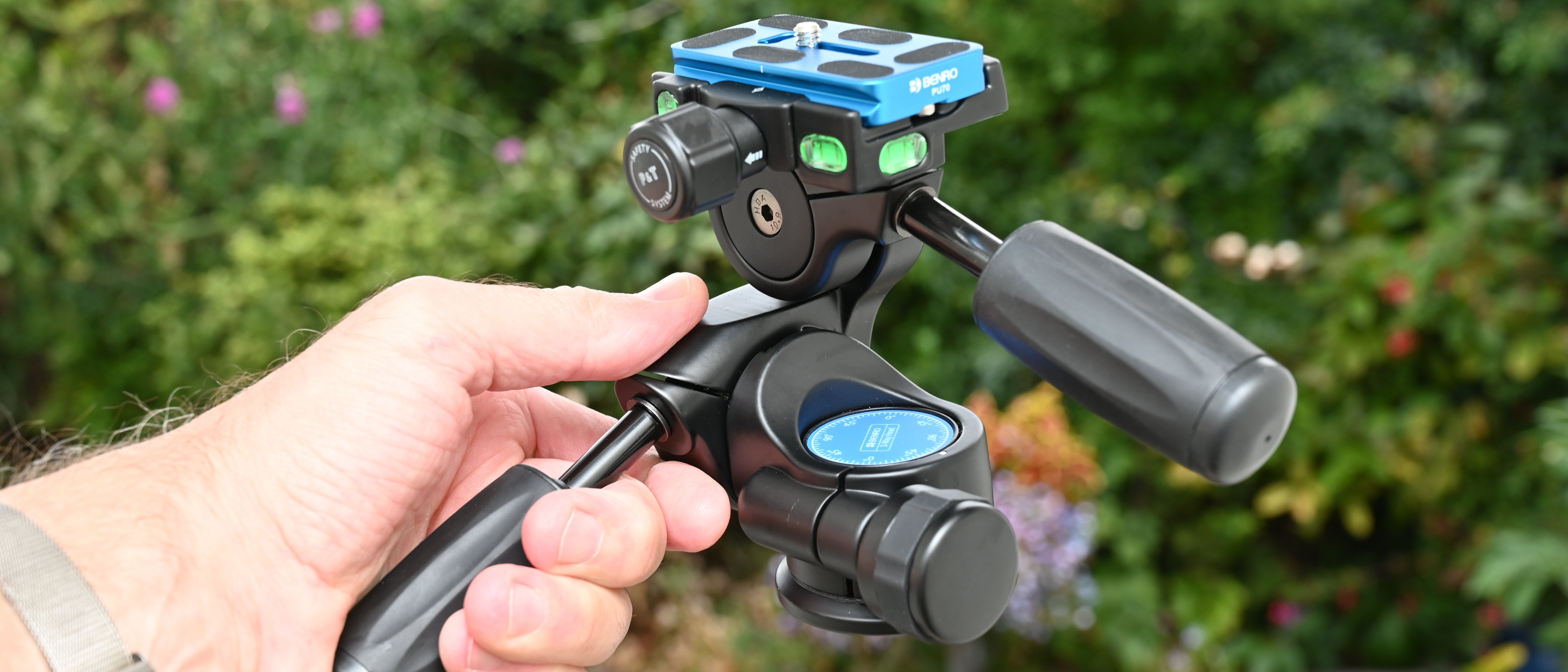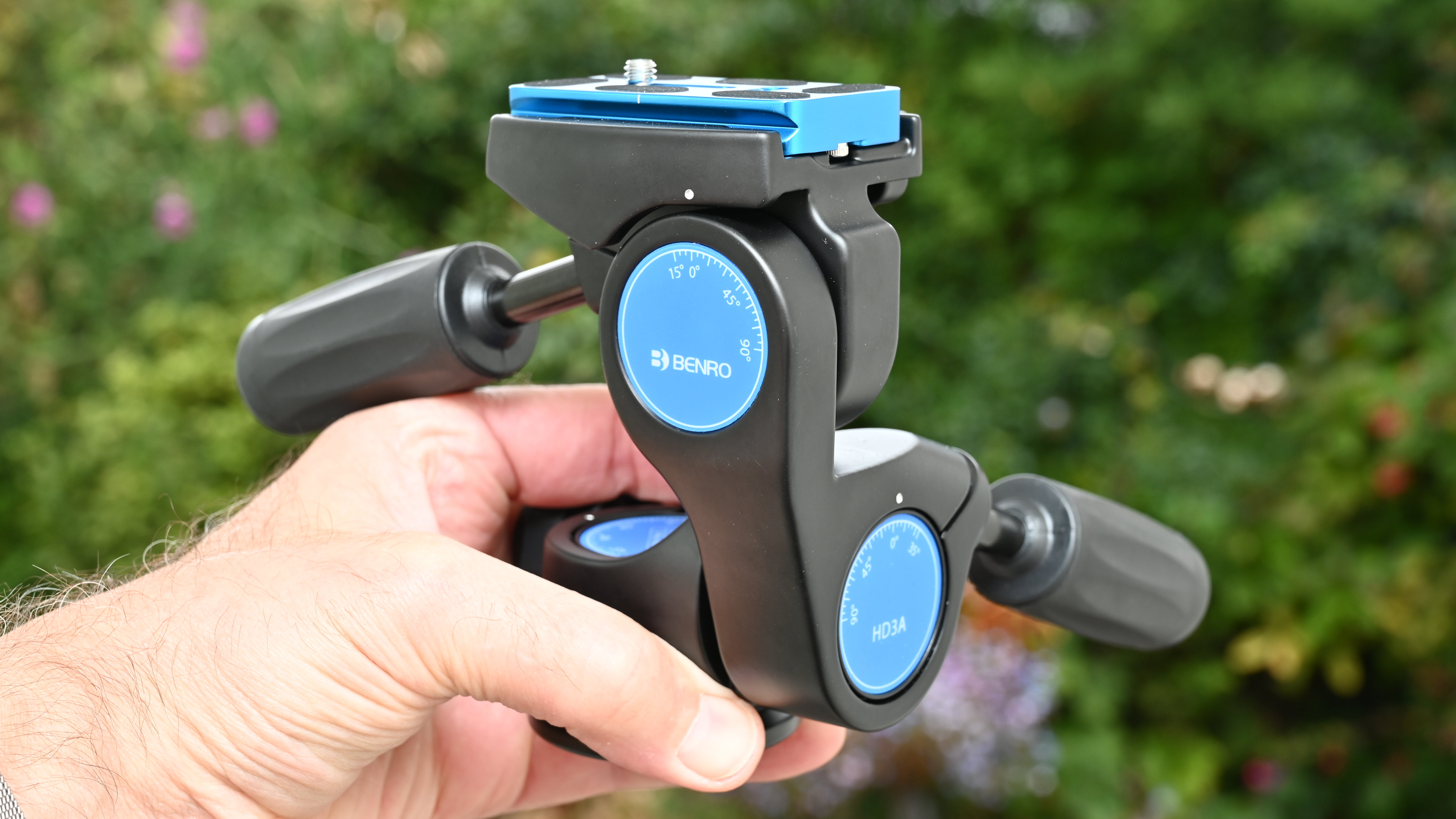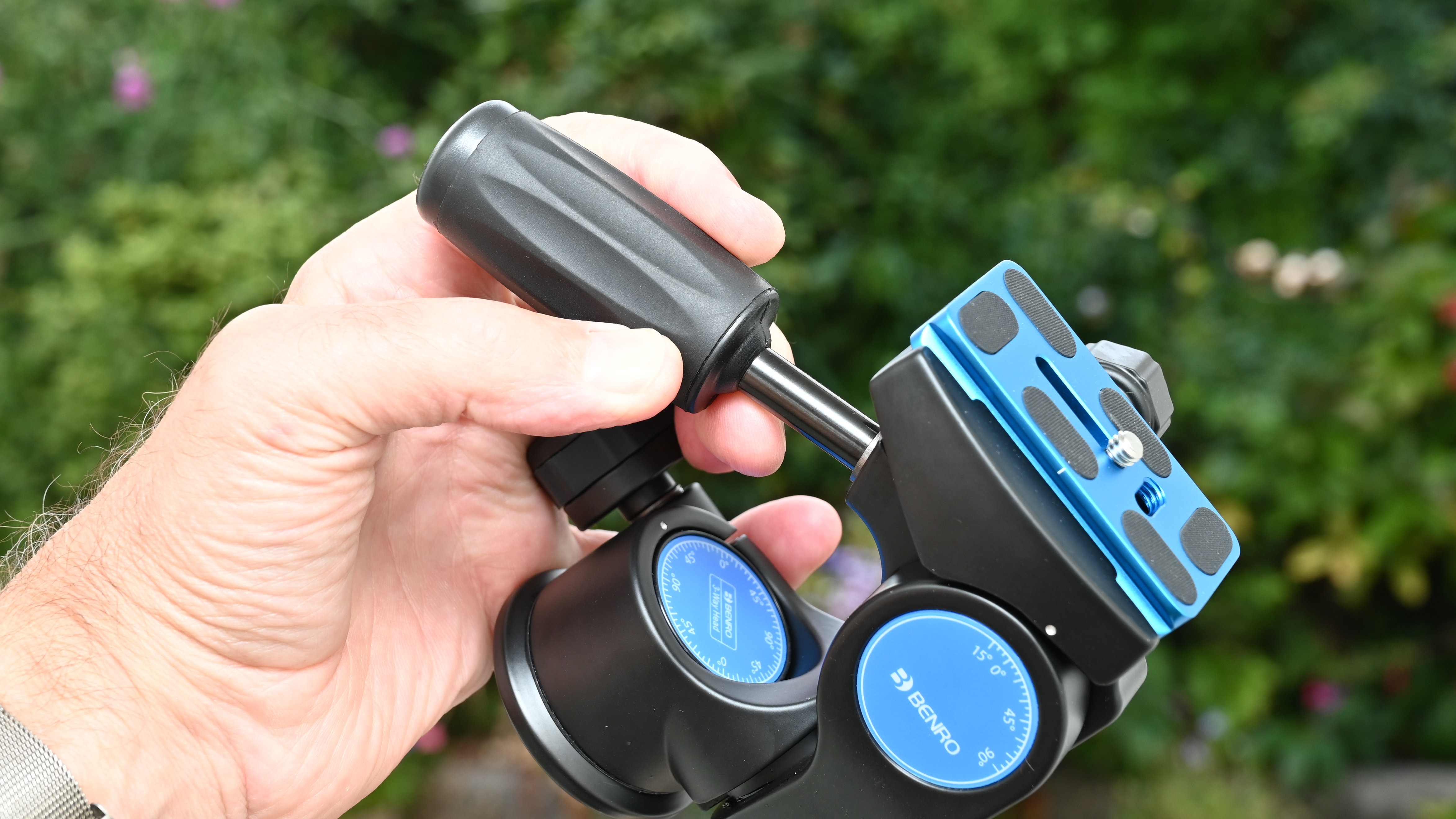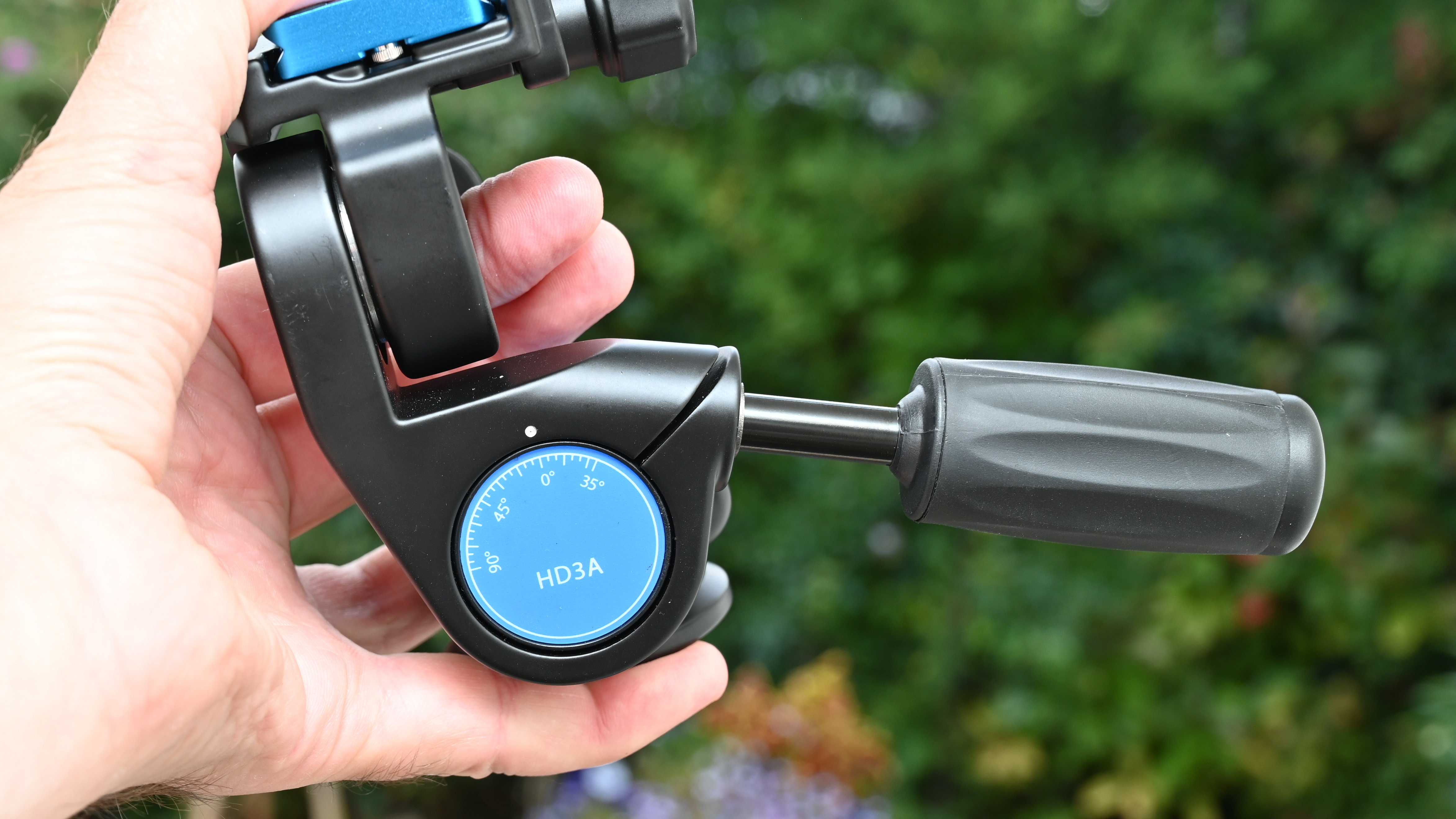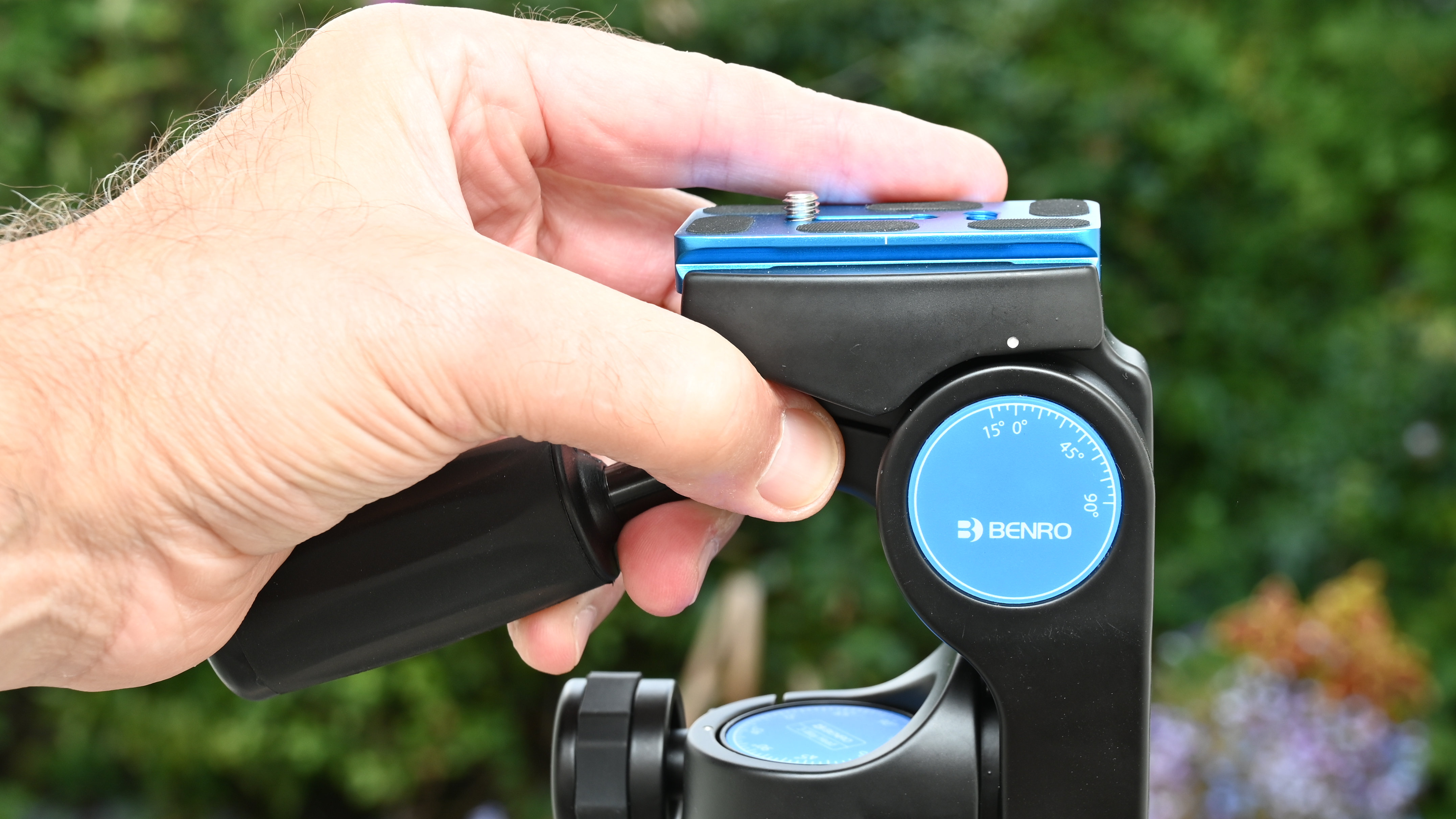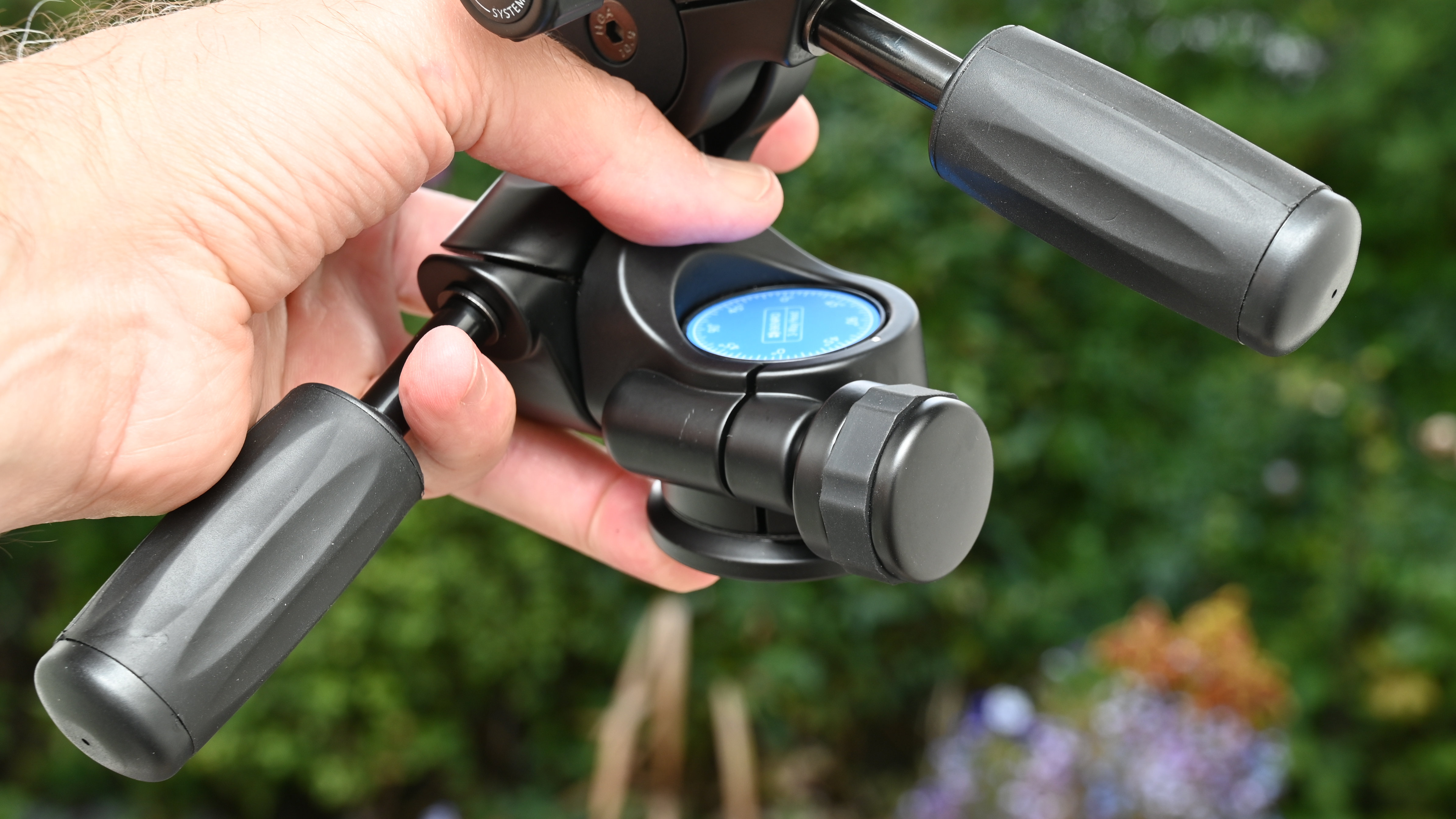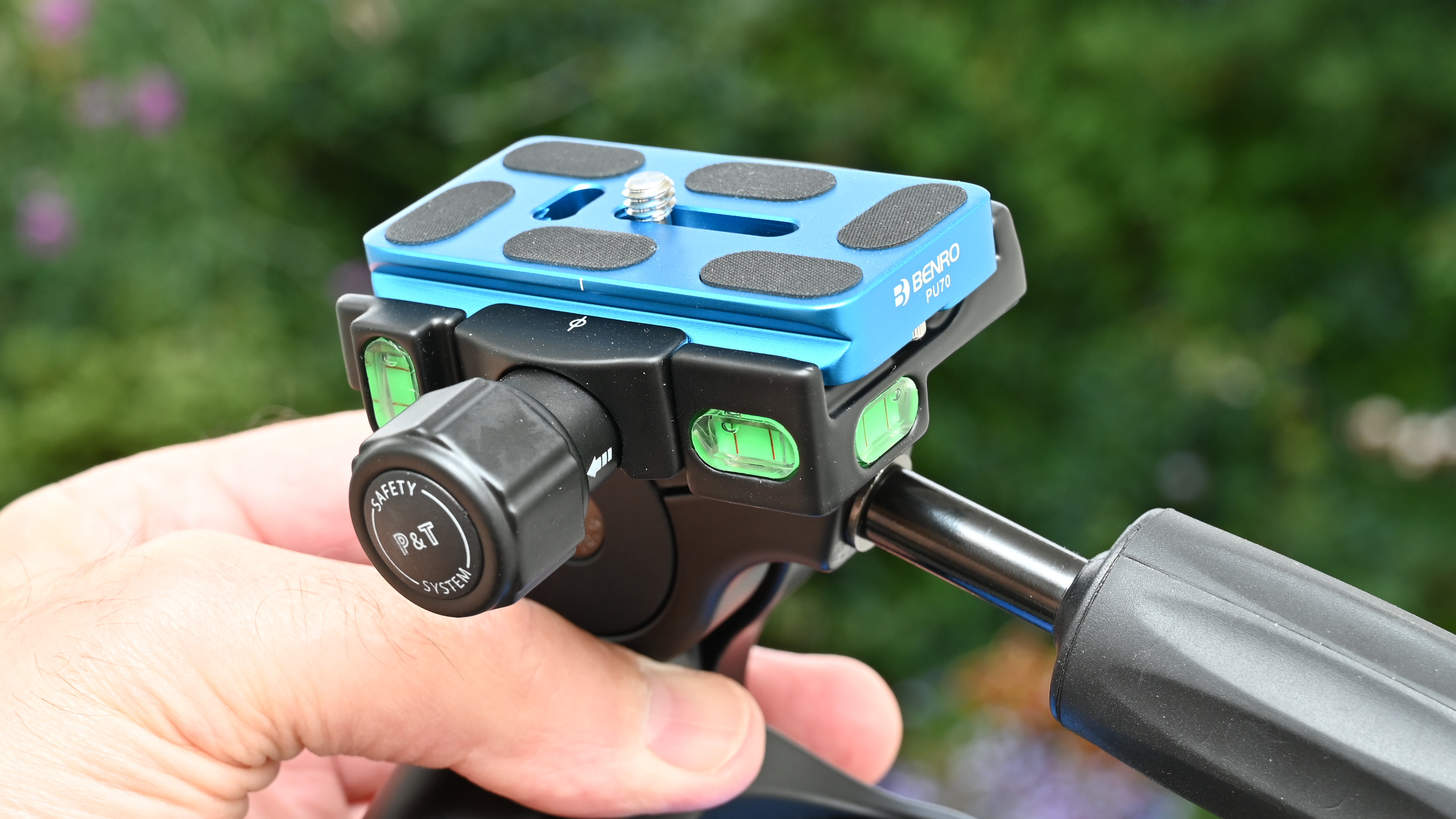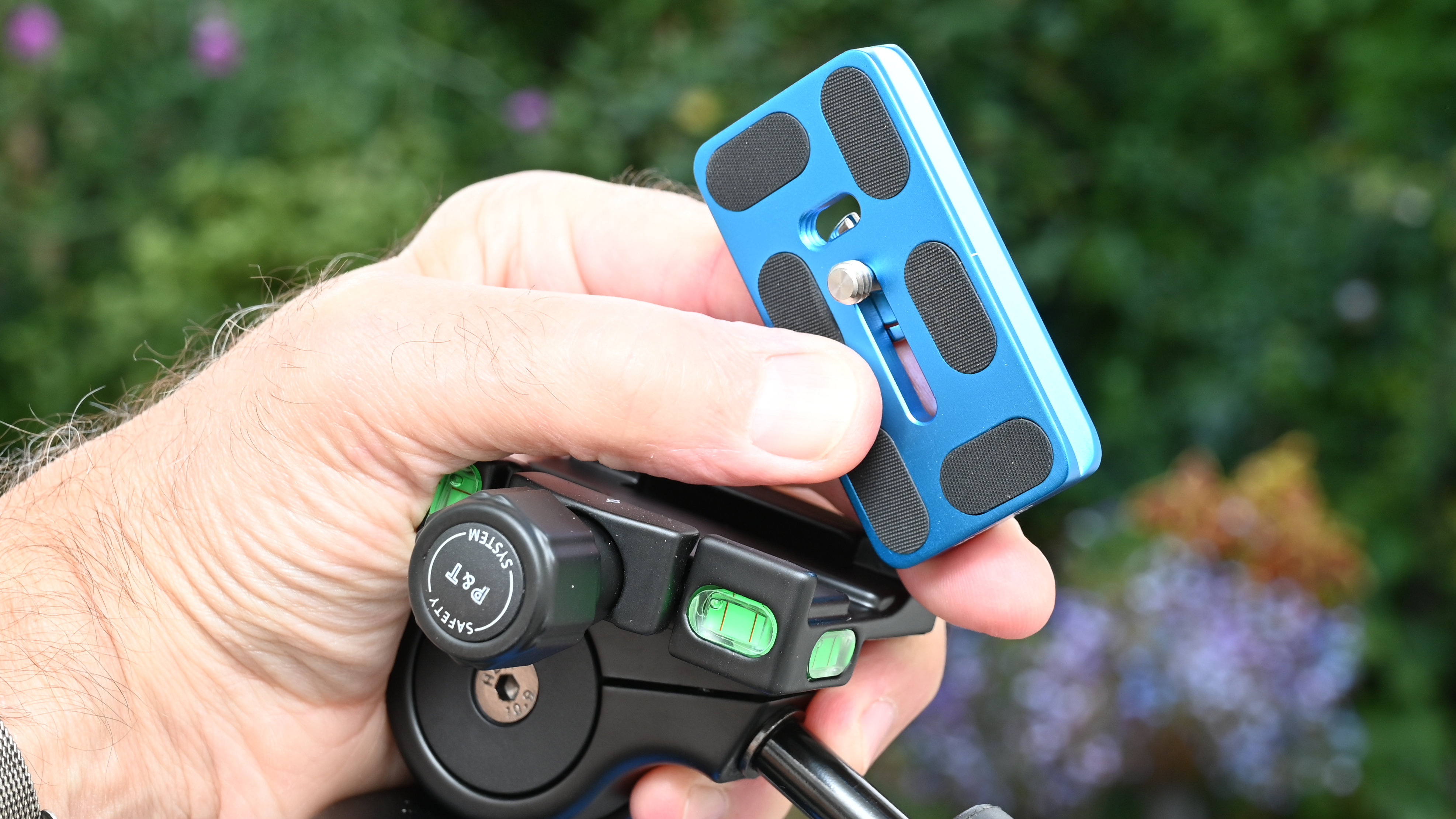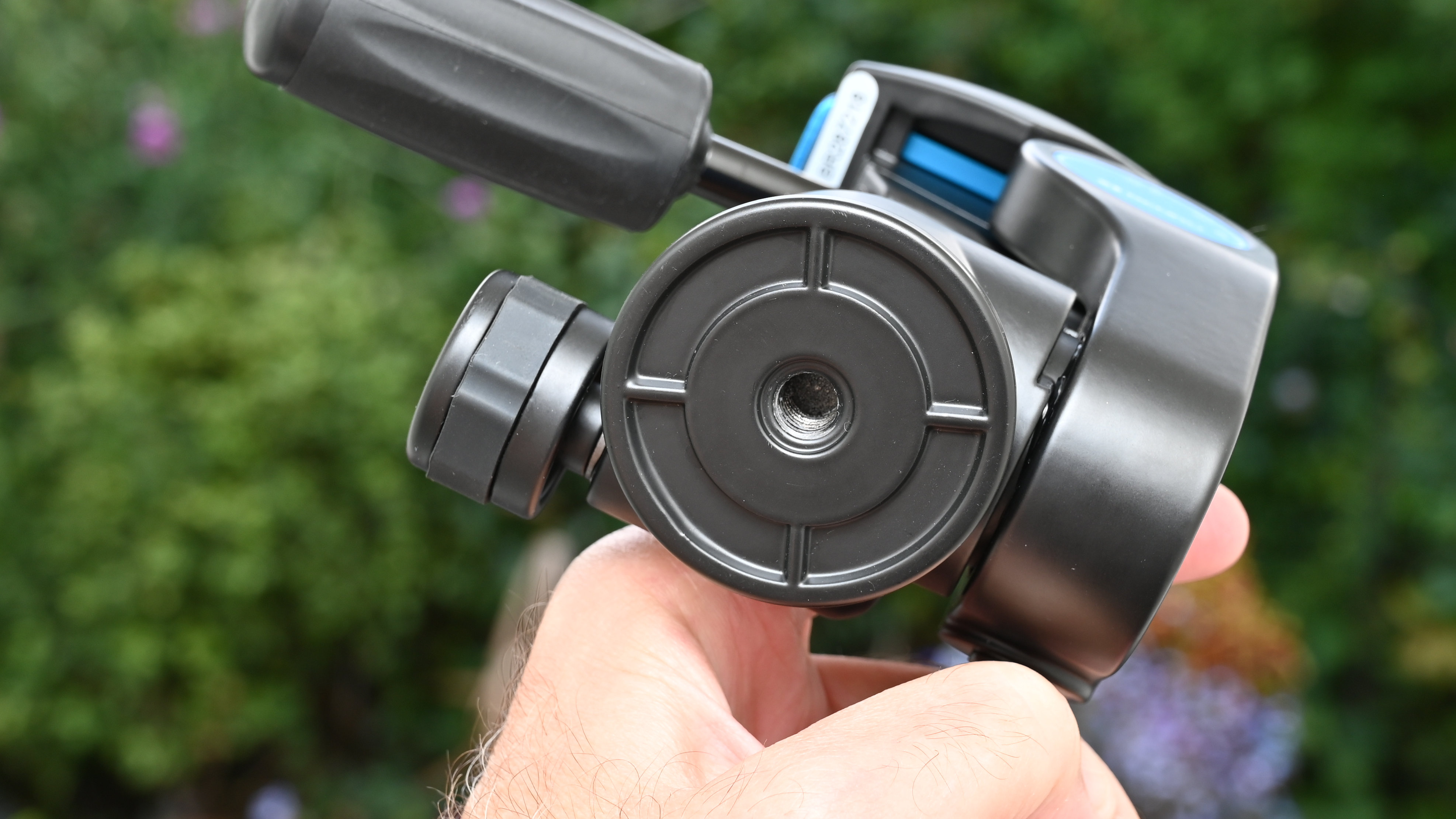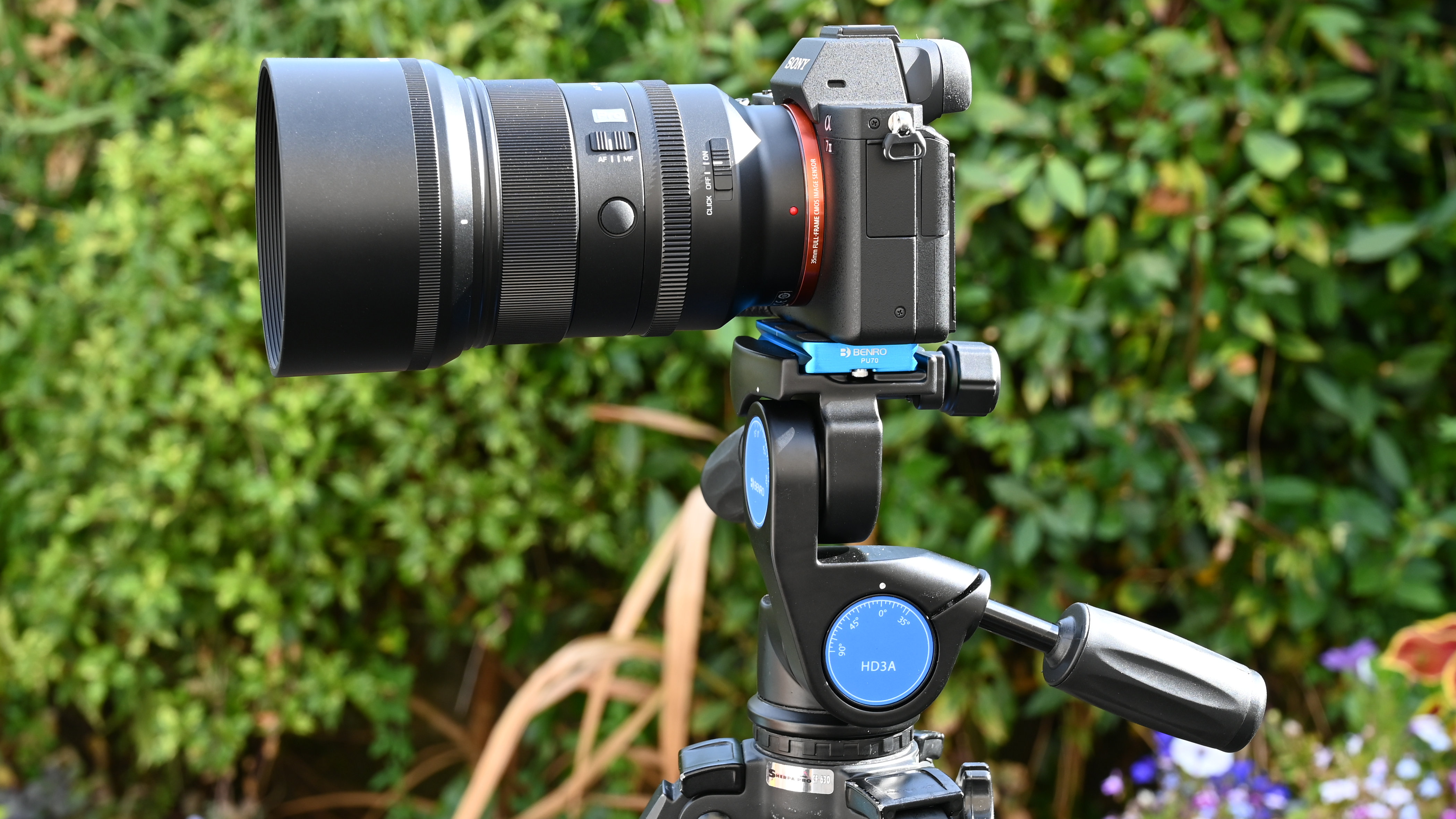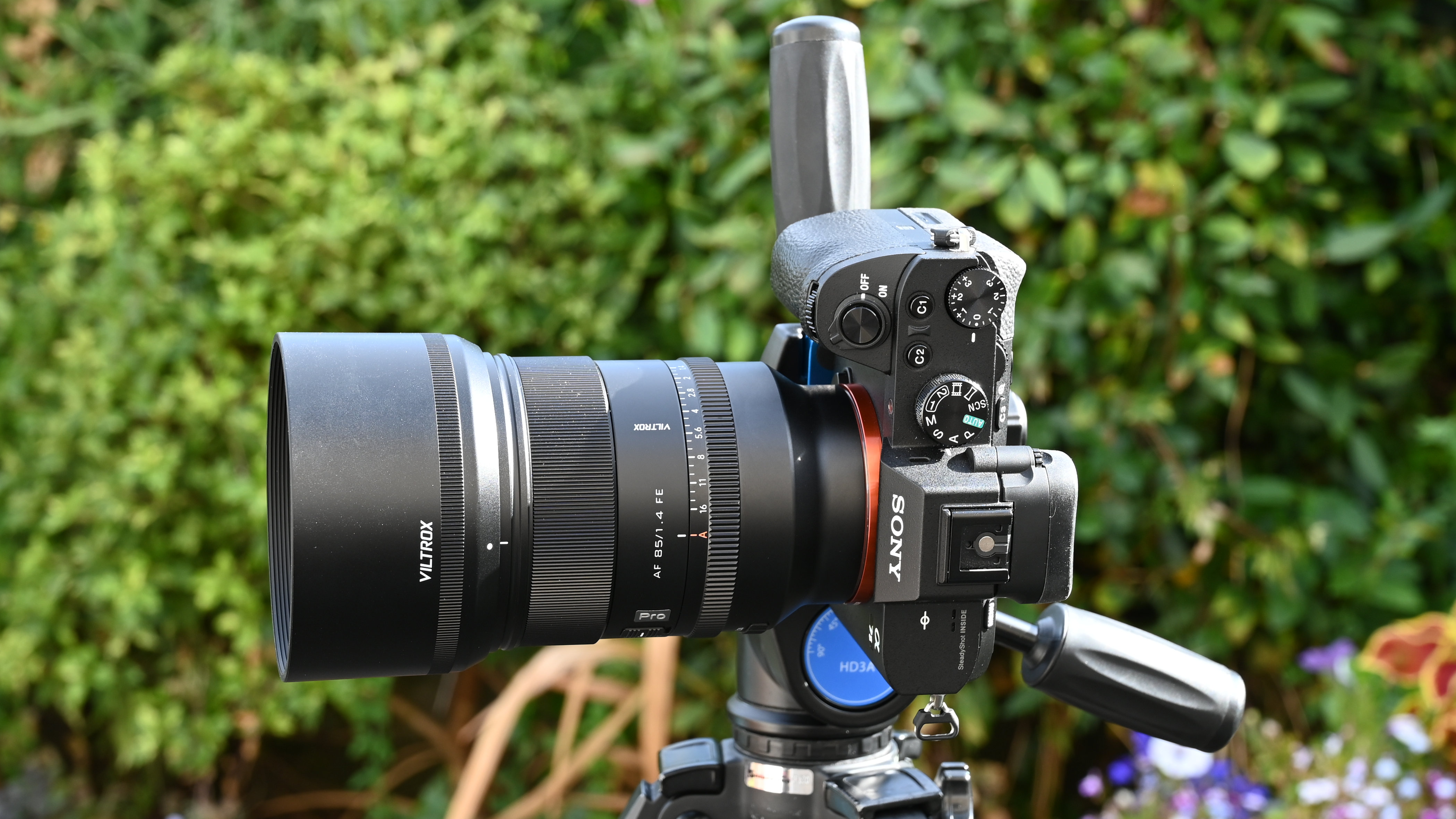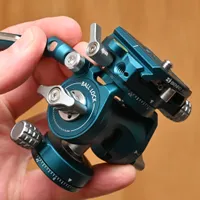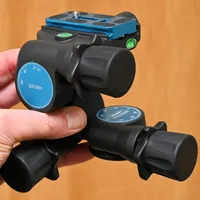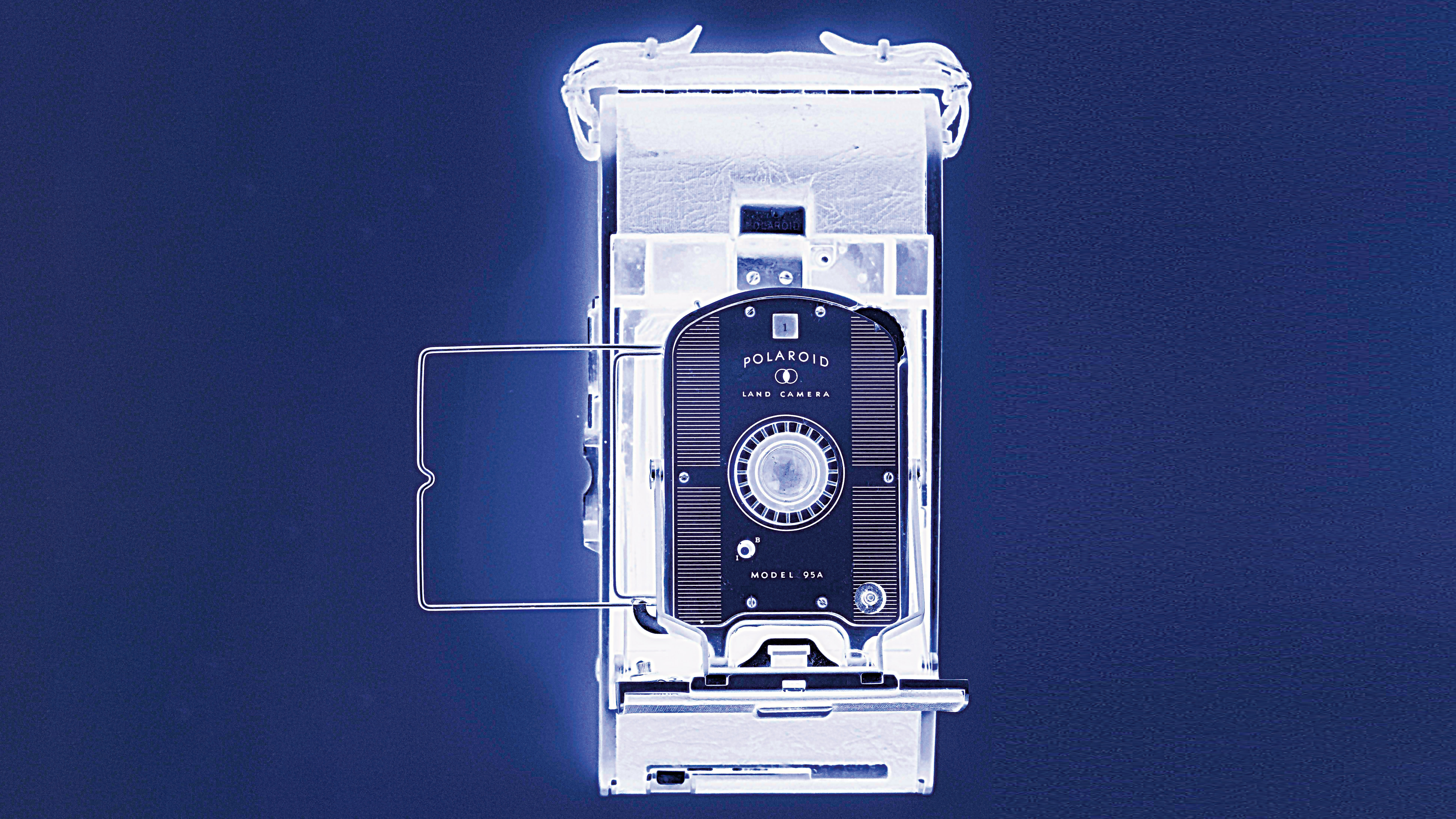Digital Camera World Verdict
The Benro HD2A 3-way head is immaculately turned out in eggshell black with blue accents, the latter including three reference scales and an Arca-Swiss quick-release plate. I like that three sizes are available in the range (I’m reviewing the middle one) and that the design makes for easy and intuitive use with excellent stability.
Pros
- +
Three sizes available
- +
Three spirit levels
- +
Arca-Swiss compatible
Cons
- -
Handles aren’t retractable
- -
Slightly limited swivel range
Why you can trust Digital Camera World
Benro has built a solid reputation on suitably solid tripod systems over the last 30 years. I’ve been particularly impressed with some of the company’s recent and more innovative products, including the Benro FS20PRO Video & Foto Head, which is like a ball head and a pan and tilt head, all in one package. The Benro HD2A 3-way head that I’m reviewing here is a more traditional 3-way head, aimed squarely at stills photography.
It’s the middle option in a set of three, having an 8kg load rating, whereas the HD1A is rated at 5kg and the HD3A supports up to 12kg. The smallest in the range lacks reference scales but all are built to the same overall design principles, aiming to be among the best 3-way heads on the market.
Benro HD2A 3-way head: Specifications
Material | Alloy |
Maximum load | 8kg / 17.6lb |
Base diameter | 52.5mm / 2.1in |
QR Plate type | Acra-type |
Locks | Tilt, pan, swivel |
Bubble/spirit levels | 3 spirit |
Height | 12cm / 4.7in |
Weight | 0.76kg / 1.67lb |
Benro HD2A 3-way head: Price
The photographic market, like many others, is awash with Chinese products that are super-cheap but of questionable quality. Benro has been a Chinese company since its inception in 1996 but has never skimped on quality, instead focusing on high-end design and manufacture. The HD2A 3-way head is a classic case in point, with a competitive but certainly not cheap price tag of $110 / £110 / AU$199. That makes it a bargain of varying degree depending on world region, compared with the likes of the Manfrotto X-PRO 3-way head which costs $220 / £129 / AU$289.
Benro HD2A 3-way head: Design & Handling
The design looks pretty standard fare for a 3-way tripod head but there’s a little more to it than meets the eye. High-quality black anodized metal surfaces have a durable and attractive eggshell black finish. Typical of Benro products, there are contrasting blue accents, which I’ll come to later. The tilt and swivel handles are comfortably long, with grippy rubber knobs on metal shafts, enabling accurate and precise adjustments with good leverage. Unlike in some designs, however, the handles aren’t retractable to reduce stowage size.
The front/back tilt range is generous, stretching from 35 degrees upwards to 90 degrees downwards, thus giving a 125-degree range in total that includes vertically downward shooting. Unlike the smallest HD1A in the range, the adjustment comes complete with a reference scale, which has numbered positions of 35 (upward), 0 (level), 45 and 90 degrees (downward), along with long marked lines for 15-degree intervals and shorter lines for intermediate 5-degree increments.
Lateral swivel has a relatively limited range of 15 degrees clockwise and 90 degrees counter-clockwise, although this serves its main purpose of enabling portrait orientation shooting without the need to use an L-bracket, or when using large lenses that rotate within a tripod mounting ring.
As is often the case with 3-way heads, the lock/release knob for panning is relatively short and stubby. Again though, it’s nice and grippy with a textured, rubberized surface. Loosening the knob enables smooth and free panning through a complete 360 degrees. Again, there’s a reference scale marked in 5-degree intervals, this time being particularly useful for taking a calibrated series of panned shots for subsequently stitching into a panoramic image. The reference markings for all three axes are also handy for replicating setups if you need to repeat a shot.
The best camera deals, reviews, product advice, and unmissable photography news, direct to your inbox!
Given that 3-way heads are ideal for architectural and landscape photography, where you want to position the camera exactly on the level, I’m pleased to see the inclusion of three separate spirit levels. Using an alternate two out of three enables precise leveling of the camera in either landscape or portrait orientation mode.
The reference markers that I’ve mentioned represent an upgrade over the previous version of the head. The other update is an Arca-Swiss compatible quick-release system. This enables maximum compatibility with other kit and is particularly useful given that many large lenses now feature tripod mounting rings with an Arca-type foot. Many L-brackets also have an Arca-type profile, enabling them to slot straight into the base plate of the head. When you do need to use the QR plate, it’s impressively long at 70mm / 2.76in, making it easy to center a wide range of cameras.
Flip the head over and you’ll find a typically circular base plate. It has a fairly large but not massive 52.5mm / 2.1in diameter, making it an ideal match for intermediate sized tripods with a similar payload rating to the 8kg / 17.6lb of the head. The height of the head is also of medium size, measuring 12cm / 4.7in.
Benro HD2A 3-way head: Performance
I found the ergonomics of the Benro head to be deeply satisfying. The controls for tilt, swivel and pan all work with smooth efficiency, requiring minimal effort to loosen them for adjustment and lock them up again afterwards. Really precise adjustments are quick and easy to achieve, while panning has a free-flowing feel to it. Another performance boost, if you can call it that, is that I didn’t drop my camera on the floor. Seriously, the lock/release knob for the quick-release plate has a special safety feature that requires you to pull it out and give it an additional twist to release the plate. The plate also features security studs to stop it sliding out to one side or the other.
The six rubber pads built into the quick-release plate aren’t the firmest in the world that I’ve ever used but nevertheless provide a solid and sturdy seating for the camera, while also potentially absorbing a little unwanted vibration. I’ve recently been testing 3-way heads with a Sony A7 II body fitted with a Viltrox AF 85mm f/1.4 Pro lens. The combination has a weight of 1.4kg / 3.2lb and the lens doesn’t feature a mounting ring, so the weight is significantly off-axis in portrait orientation shooting. The Benro was easily able to support the load and proved very stable and rigid, as confirmed by manually focusing and using an enlarged preview with image stabilization switched off.
Benro HD2A 3-way head: Verdict
What you see is what you get. I really like that this Benro head looks immaculately engineered and beautifully finished. Not just a case of style over substance, those good looks translate into excellent performance. Good things seem to come in threes, with refined 3-way adjustment, three reference scales and three spirit levels. There aren’t really any fancy tricks or design innovations, but the head is simple and intuitive to use, and offers really solid support. It’s a win as far as I’m concerned.
Features ★★★★☆ | Desirable features include reference scales for all three axes, three spirit levels and a safety-conscious Arca-Swiss quick-release system. |
Design ★★★★★ | Build quality feels very good indeed and the head is smartly designed and impeccably finished. |
Performance ★★★★★ | Performance is excellent, in terms of the speed, ease and precision of adjustments, and the rigid stability of the head. |
Value ★★★★☆ | The Benro is competitively priced for such a high-quality head with a strong set of features and great performance. |
Alternatives
The Benro FS20PRO Video & Foto Head is a relatively compact and lightweight affair, with a maximum payload rating of 4.5kg / 10lb. It’s particularly versatile for both stills and video, combining a ball head action with pan and tilt operability, all in one clever head.
The Benro GD3WH Geared Head is arguably better for ultra-precise adjustments, as it features rotating knobs for micrometric adjustments in all three of the tilt, swivel and panning axes. It’s a high-quality example of the breed, made from magnesium alloy and with a 6kg / 13.2lb load rating.
Matthew Richards is a photographer and journalist who has spent years using and reviewing all manner of photo gear. He is Digital Camera World's principal lens reviewer – and has tested more primes and zooms than most people have had hot dinners!
His expertise with equipment doesn’t end there, though. He is also an encyclopedia when it comes to all manner of cameras, camera holsters and bags, flashguns, tripods and heads, printers, papers and inks, and just about anything imaging-related.
In an earlier life he was a broadcast engineer at the BBC, as well as a former editor of PC Guide.
- Adam WaringGuides Editor
You must confirm your public display name before commenting
Please logout and then login again, you will then be prompted to enter your display name.
